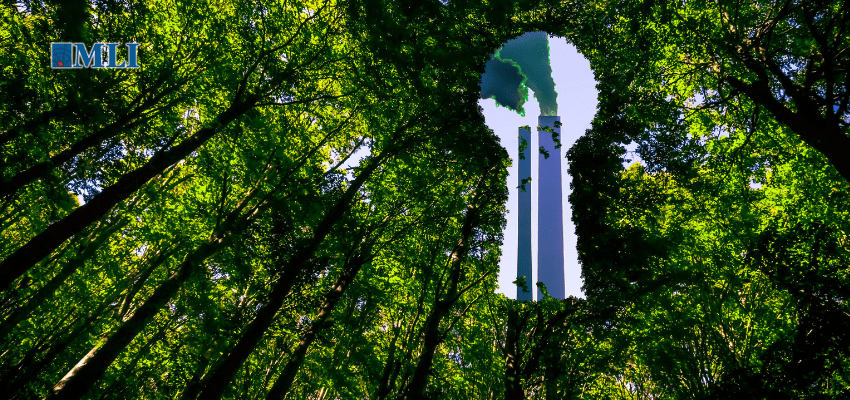This article originally appeared in the National Post.
By Heather Exner-Pirot, Sonya Savage and Bryan Detchou, March 4, 2025
On April 30, 2024, a late stage amendment was introduced to the omnibus Bill C-59. Known as the “greenwashing amendment,” it introduced Orwellian restrictions on the ability of businesses operating in Canada to communicate their environmental goals.
The amendment was passed under the pretext of protecting consumers from false or misleading environmental claims, especially from the oil and gas industry. In practice, it has resulted in the silencing, or “greenhushing,” of business and non-profits from dozens of sectors. It has been as bad as everyone warned it would be — and it should be repealed.
The greenwashing amendment was the latest in a series of efforts by environmental organizations to restrict fossil-fuel lobbying and ban fossil-fuel advertising in Canada, including through United Nations expert groups, municipal bylaws and private member’s bills.
This was motivated in part due to objections to the efforts of oil and gas companies to make their business activities compatible with net-zero emissions goals. For many environmental groups, the solution to climate change means eliminating fossil-fuel production, not improving it, and any suggestions otherwise are galling.
The greenwashing amendment advanced a more sophisticated means to restrict fossil-fuel advocacy. It added provisions to Canada’s Competition Act that posed unacceptable risks to any company or association wanting to communicate their environmental goals, not only to their customers, but to investors, shareholders, governments and the general public.
It required a person or company making an environmental claim to be able to prove it based on an “internationally recognized methodology” that it did not define, and in many cases does not exist. It applied a reverse onus proof, exposing companies to large costs arising from frivolous and mischievous complaints.
It enabled private action, allowing environmental activists and climate advocacy groups, as well as consumers, business competitors and even disgruntled employees, to file complaints. Previously, only businesses whose operations were directly impacted by another business’s alleged anti-competitive conduct could bring a private action.
It applied punitive fines, up to $10 million for a first offence or three per cent of the corporation’s annual worldwide gross revenues, whichever is greater. For a large oilsands company — the obvious target of the amendment — that could mean a fine of over $1 billion.
And it applied to business activities, as opposed to just consumer products, taking it far outside the mandate of the Competition Bureau.
The greenwashing amendment was passed by the House finance committee after the second reading of Bill C-59 had already been completed. It enjoyed virtually no debate, no consultation with stakeholders and no fulsome discussion in the ordinary course of parliamentary procedure.
It sparked a huge and immediate backlash from industry. Pathways Alliance, a consortium of oilsands producers, took down much of its website. Many other companies and associations scrubbed their environmental sections, as well.
Supporters of the greenwashing amendment heralded these actions as evidence that they were indeed misleading the public. In fact, lawyers were advising their clients to remove any environmental claims in order to avoid the high risk of frivolous and expensive litigation.
The agency responsible for enforcing the greenwashing amendment, the Competition Bureau, was besieged with queries and complaints. In response, it put out interim guidance in July 2024, warning Canadian companies that, “An environmental claim might be literally true, but still create a false or misleading general impression,” and that they should “avoid aspirational claims about the future.” This hardly quelled fears.
Initiating consultations with the public on the greenwashing amendment after it was already law, the Competition Bureau received 208 submissions in the fall of last year, almost all expressing concern.
They came not only from the usual suspects in the oil and gas industry, but from Green Leader Elizabeth May, Alberta NDP Leader Naheed Nenshi, clean technology companies and even officials from Environment and Climate Change Canada, all calling out the deleterious impacts of the amendment.
The Competition Bureau subsequently issued new draft guidelines two days before Christmas. However, the bureau is clear that the guidelines do not carry the force of law, and ultimately the courts will decide how to interpret the greenwashing amendment.
As such, they will fail to reduce the risk Canadian corporations now face whenever they talk about their environmental goals. As a result, many companies will say nothing. That will lead some of them to do nothing, although there will be no way for us to know. This can hardly be the desired outcome of our climate policies.
The greenwashing amendment accomplished indirectly what is difficult to do directly: creating a de facto ban on advertising, advocacy and participation in the public policy process for the fossil-fuel sector. No amount of guidance or clarification from the Competition Bureau can fix these underlying issues. The law should be repealed.
Heather Exner-Pirot is director of energy, natural resources and environment at the Macdonald-Laurier Institute.
Sonya Savage is a senior fellow at the Macdonald-Laurier Institute and former Alberta minister of both energy and environment.
Bryan Detchou is senior director of natural resources, environment and sustainability at the Canadian Chamber of Commerce







